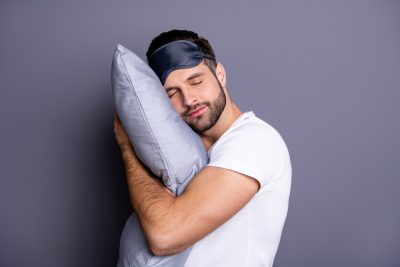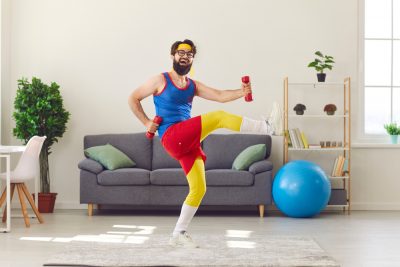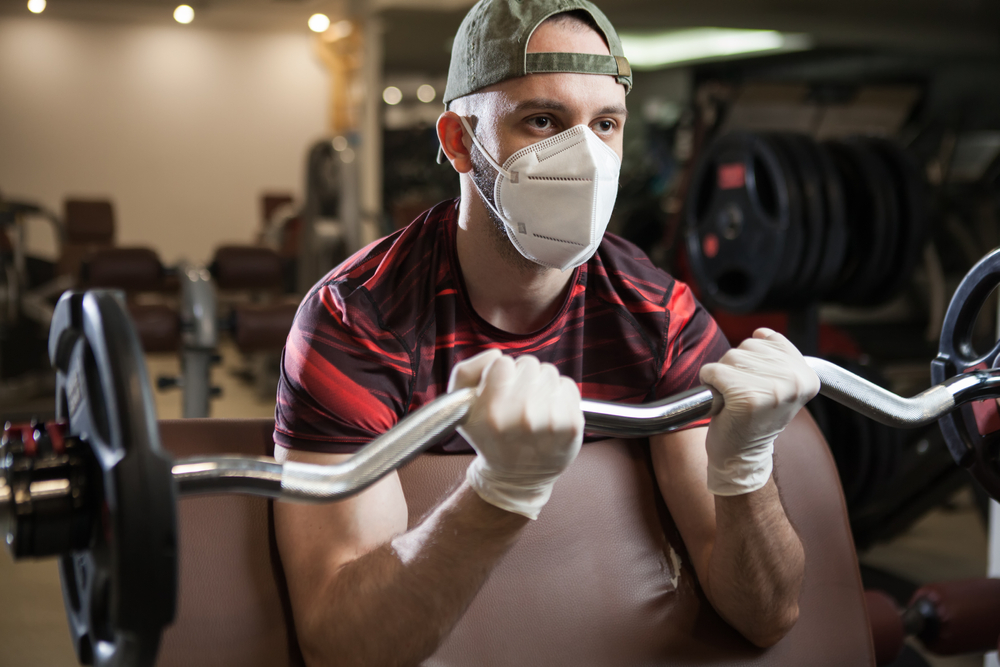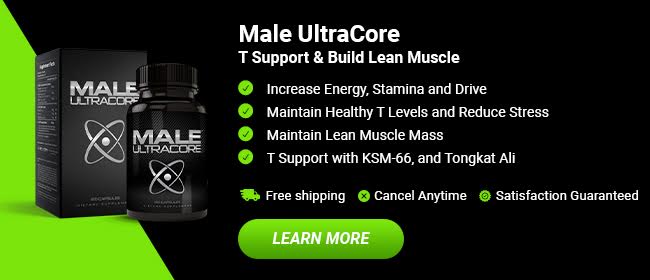COVID-19 has affected all of our lives. From wearing masks, social distancing, and travel restrictions to economic unpredictability and changes to work and school life, we are dealing with the results of the pandemic every day.
With so much going on, we now deal with choices and situations that can trigger very high levels of stress and anxiety. Unconsciously, we begin to focus too heavily on worst-case scenarios and feel overwhelmed and challenged in differentiating high-risk from low-risk activities.
There is a way for us to manage that: working out.
We are all well aware of the physical benefits of exercise and physical activity. Now, more than ever, online content on exercise, diet, and nutrition has scaled to make it globally accessible.
But let us go over specifically how working out can benefit our overall mental health and well-being. Read along to explore the most common reasons why exercise is mentally essential throughout the COVID-19 pandemic:
Boosting mood through movement
Ever watched the hit movie Legally Blonde? The hit Hollywood movie was centered around Harvard law student and sorority sister, Elle Woods, played by Reese Witherspoon. There was a scene where Elle, alongside other fellow Harvard law students, discussed the possibility of their client, a female fitness instructor, killing her husband. She goes on to say, “Exercise gives you endorphins. Endorphins make you happy.”
According to sport and exercise psychologist, J. Kip Matthews, Ph.D., when we exercise, our bodies start to produce a neurotransmitter called endorphins, which “help bring about feelings of euphoria and general well-being.”
They are mood-boosters to help reduce stress levels and develop psychological strength.
Curious if it really works? First thing tomorrow we could spend 30 minutes doing some physical activity and afterward observe how we feel. We can begin with your classic jumping jacks! We have nothing to lose, and everything to gain.
Chase the blues away
Feeling a little down lately? Let’s get those mood-elevating endorphins up! There are hundreds of playlists found online that can encourage you to start a song and dance number.
According to Karmel Choi, a clinical and research fellow at the Harvard T. H. Chan School of Public Health, any kind of physical movement can help to keep depression and anxiety away. There’s no need to run an Iron Man Marathon, do endless stretches of HIIT workouts, or be a CrossFit guru to see the effects on your mood.
And we all know that depression is a real illness that has been around for ages, and it will be around for as long as there will be humans on this planet. No one is immune to mental health issues especially in a situation as traumatic as a pandemic, so move your body, shake it, and exercise the blues away.
Salute to Sleeping
 We all know that we need to sleep. It’s a basic necessity. However, the pandemic has managed to keep some of us up at night, thinking about what could happen in case the virus hit us. An article on the World Economic Forum talks about how “70% of people have reported one or more new sleep challenges since the start of the pandemic.”
We all know that we need to sleep. It’s a basic necessity. However, the pandemic has managed to keep some of us up at night, thinking about what could happen in case the virus hit us. An article on the World Economic Forum talks about how “70% of people have reported one or more new sleep challenges since the start of the pandemic.”
Some people may be unaware, but there have been several medical research and studies that show how regular exercise actually helps in enhancing sleep quality.
We can establish a simple, but progressive workout schedule for each week. While we could set it around work or school commitments, some research has shown that if we exercise at least 2 hours before our bedtime, there may be a higher chance that we would get some good shuteye. We would be just like those kids who run around all afternoon and end up having a good night’s sleep.
Sweat to Protect
Protecting yourself from acquiring the COVID virus can be done by maintaining good washing habits and social distancing. Did you know that exercising can also do the same?
Working out does more than enhancing our physical health; it also assists us in improving our body’s’s immune system. In an online science journal, moderate to intense physical activity of up to 60 minutes increase antibodies and improve the tissues and cells in our bodies.
According to medical research, there is some support for exercise and its effect on immunity. Physical activity may help expel bacteria from the respiratory system and reduce your likelihood of catching a flu or a cold.
Exercise causes changes to antibodies and white blood cells (WBC), which are the body’s primary cells that fight off illness. These WBCs circulate more freely as blood flow improves when exercising, meaning they could detect invaders and help aid against them.
The elevated body temperatures the body experiences during and right after exercise may prevent bacteria from surviving. Elevated temperatures may help the body fight infection better, much like what happens when you’re running a little fever. Exercise has shown that it may inhibit the release of cortisol, which consequently leads to better protection against illnesses. Again, we have nothing to lose, and everything to gain.
Shake it ‘Til We Make It
 The coronavirus pandemic has psychologically affected a lot of us due to the strict travel restrictions, quarantine regulations, and tight border checkpoints. It has triggered high levels of stress, anxiety,, and depression.
The coronavirus pandemic has psychologically affected a lot of us due to the strict travel restrictions, quarantine regulations, and tight border checkpoints. It has triggered high levels of stress, anxiety,, and depression.
But we can fight this! Let us all do our best to find time every day to move. Do a Taylor Swift ourselves and shake it off!
How will we start day 1 of our workout routine? There’s yoga and meditation, a Zumba dance party, and combat kickboxing. There are so many options from which to choose.
Any kind of physical activity during the day, no matter how simple, can go a long way to improve our state of mind. Start simple or start slow. It’s okay. What matters is that we start.








COMMENTS